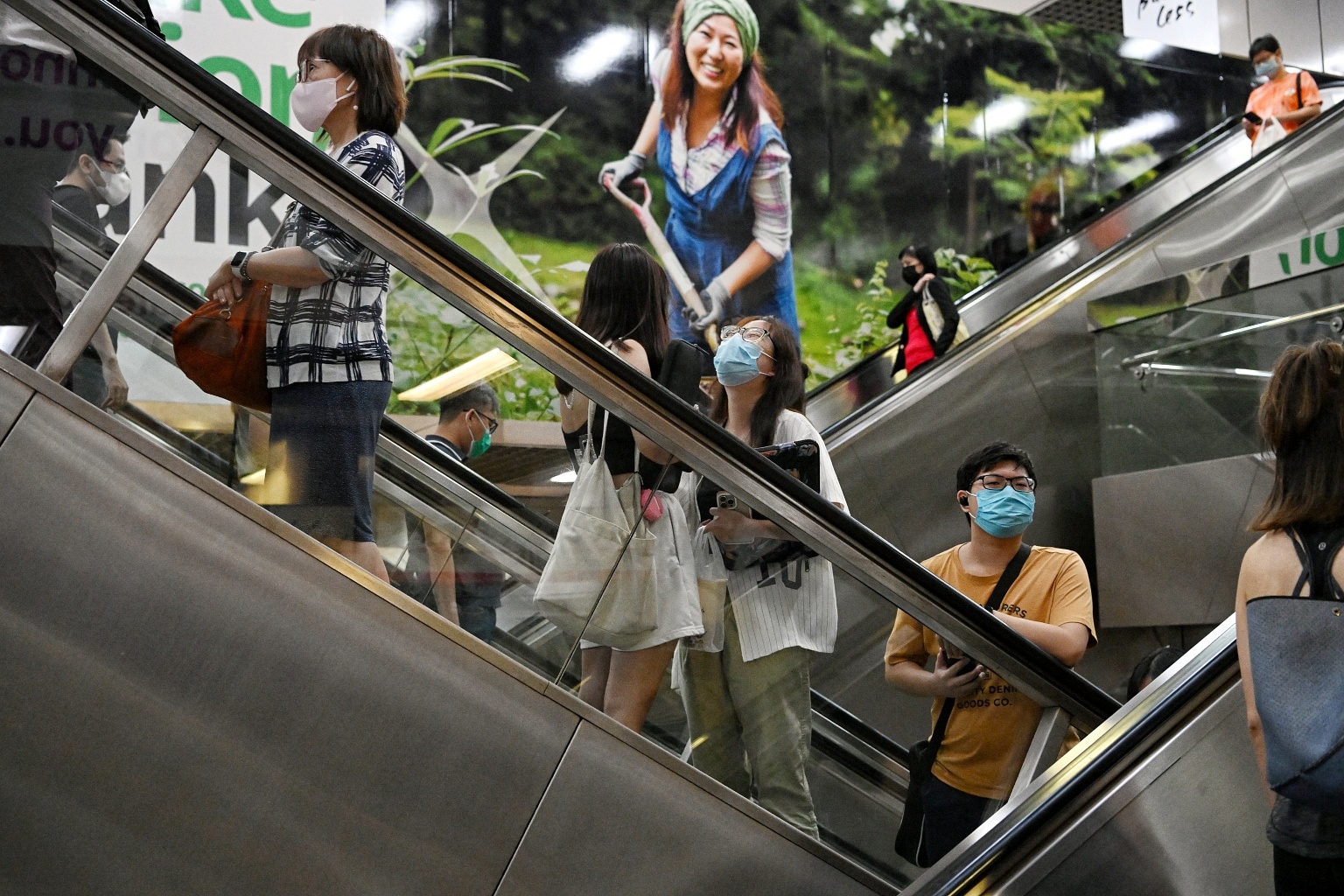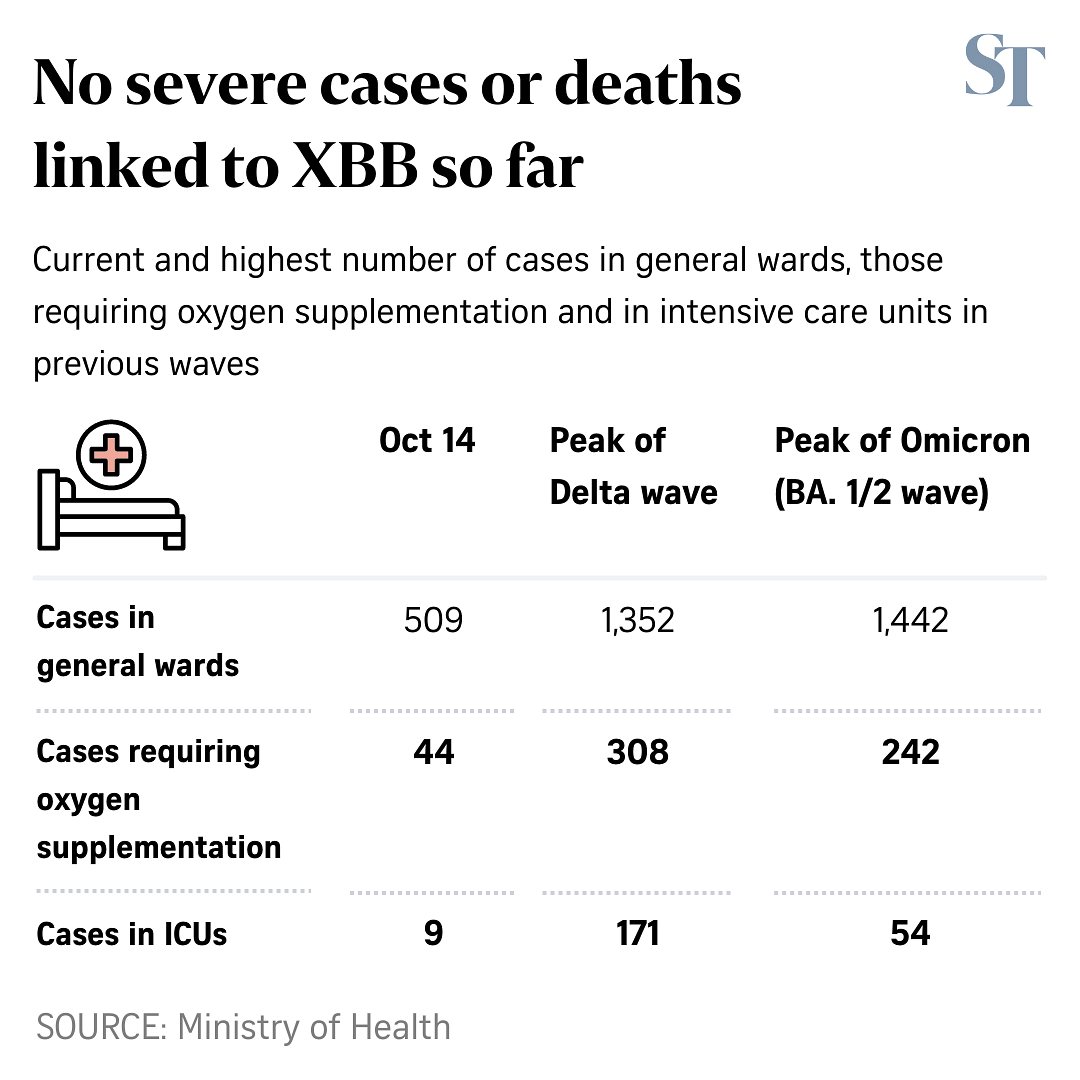With Covid-19 cases rising due to XBB strain, do people need to mask up again?
Sign up now: Get ST's newsletters delivered to your inbox

Health Minister Ong Ye Kung urged those who were not feeling well or living with the elderly to wear a mask.
ST PHOTO: KUA CHEE SIONG
SINGAPORE - It was a literal breath of fresh air for many when Singapore stopped requiring the wearing of masks outdoors on March 29, and then in most indoor settings five months later on Aug 29.
But with the XBB Omicron subvariant driving a new wave of Covid-19 infections that could hit an average of 15,000 daily new cases at its peak in mid-November, will people need to start masking up again?
Currently, masks are required only on public transport and in healthcare settings, such as hospitals and clinics.
But if you are not feeling well or if you are living with the elderly, then yes, please wear a mask, said Health Minister Ong Ye Kung on Saturday.
This is a matter of personal responsibility, he told reporters at a press conference.
Seniors and those with compromised immune systems should also wear masks in crowded indoor settings, while members of the public who are in crowded places or visiting or interacting with vulnerable people should also mask up.
Students taking examinations should also take precautions, he added, including wearing a mask when going to crowded areas.
Mr Ong on Saturday cautioned that the reinstating of mask mandates cannot be ruled out should the situation get worse.
He said: "We are extremely reluctant to bring back any of those SMMs (safe management measures) like heightened alert, circuit breaker. Then we are not living with the virus. But some measures... we should expect as part and parcel of living with Covid-19. Wearing our masks, for example."
Professor Teo Yik Ying, dean of the Saw Swee Hock School of Public Health, said wearing a mask reduces the risk of infection - not just from Covid-19 but also other respiratory diseases.
"We have always encouraged people who are uncomfortable with the Covid-19 risk in crowded places to wear a mask, and this is definitely true for the elderly and immuno-compromised, and anyone who interacts with these people regularly," he added.
While Singapore has the option of tightening mask rules should things turn dire in the short term, Prof Teo said, in the long-term, living with Covid-19 means developing an awareness among the population of how to protect themselves.
This includes wearing a mask voluntarily in crowded spaces, or staying away from crowds when sick.
"While the public will be thinking 'when will this nightmare end?', it is important to realise Singapore continues on the trajectory of making prudent decisions on the back of surveillance data and evidence... so our healthcare system will never be overwhelmed to the point of compromising our ability to care for those in medical need," Prof Teo added.
Face masks began flying off the shelves after the first Covid-19 case was confirmed in Singapore on Jan 23, 2020.
The Government initially said they needed to be worn only if a person was feeling ill. But as the number of local cases climbed, the wearing of masks, both indoors and outdoors, became mandatory on April 14, 2020.
It was nearly two years later that rules began to ease.
Other countries, including Malaysia and the Philippines, have also relaxed their rules, though some, like Germany, have begun to tighten mask policies in response to rapid increases in Covid-19 infections recently.



